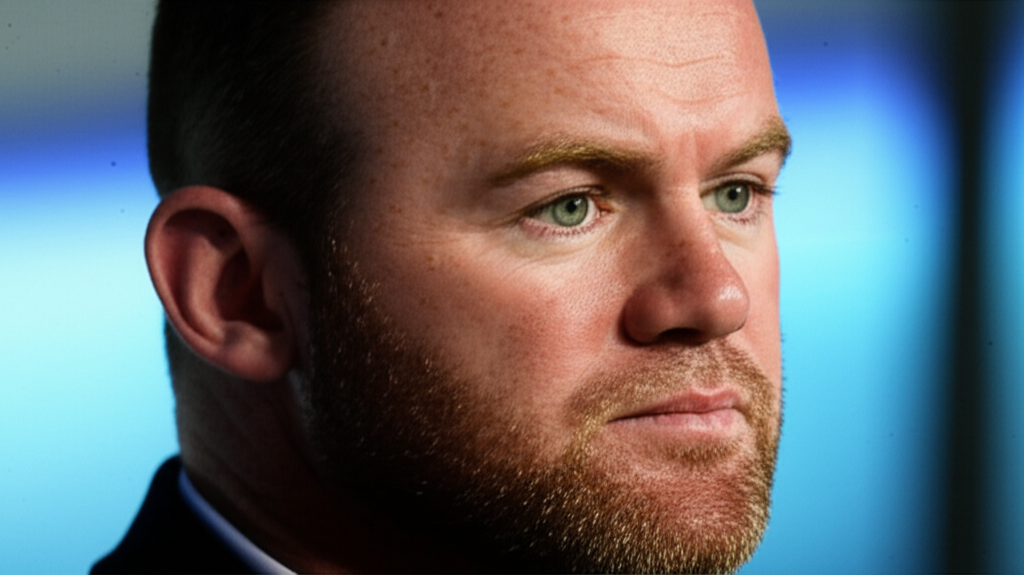Rooney’s Stance on Player Loyalty Sparks Debate
Manchester United Icon’s Comments on Isak Transfer Request Raise Questions About Modern Football Ethics
Wayne Rooney, a figure synonymous with loyalty during his illustrious Manchester United career, has recently voiced strong opinions regarding player transfers and the perceived lack of commitment in today’s game. His comments, specifically concerning Newcastle United’s Alexander Isak and a hypothetical move to rivals Liverpool, have ignited a conversation among football fans and pundits about the evolving dynamics between players, clubs, and supporters.
Rooney’s Direct Assessment of Isak
The former England captain, speaking in his capacity as a pundit, stated that he would not welcome Alexander Isak back into a Newcastle squad if the player actively sought a transfer to a rival club like Liverpool. Rooney’s perspective, as reported by the Mirror, suggests a traditionalist view on player allegiance, emphasizing the importance of respect for the club and its fanbase when contemplating moves, particularly to direct competitors.
“If I was a Newcastle fan, I wouldn’t want him back,” Rooney is quoted as saying. His sentiment appears rooted in the idea that attempting to force a move, especially to a rival, demonstrates a lack of dedication to the current club.
Contextualizing Rooney’s View: A Changing Landscape
Rooney’s remarks come at a time when player power and transfer market speculation are at an all-time high. While loyalty has always been a prized virtue in football, the modern game is characterized by lucrative contracts, global media attention, and frequent managerial changes, all of which can influence a player’s career decisions. The financial aspects of the sport and the opportunities for career advancement often play a significant role.
This perspective is not unique to Rooney. Many long-serving players and supporters often express a desire for greater commitment from their stars. However, counterarguments often highlight that players, as professionals, are entitled to seek opportunities that they believe will benefit their careers, both financially and in terms of achieving major honors. The transfer window, in this view, is a mechanism for clubs and players to negotiate new terms or facilitate moves when interests diverge.
The Role of Club Management and Fan Expectations
Rooney’s reference to Sir Alex Ferguson “looking the other way” in his own past situations, as mentioned in the source title, adds another layer to the discussion. It implicitly contrasts the management styles and expectations of different eras. Ferguson, known for his strong disciplinary hand and emphasis on club ethos, was also pragmatic in transfer dealings. Rooney’s own transfer saga from Everton to Manchester United, while different in context, involved significant negotiation and public discussion.
For fans, the emotional investment in their club often translates into a demand for unwavering loyalty. A player seeking to leave, especially for a rival, can be seen as a betrayal of that trust. Newcastle United, currently under ambitious ownership and aiming for sustained success, would naturally want players who are fully committed to their project. Isak’s rumored desire to move, if true, would indeed test those loyalties.
Analyzing the “Pro-Loyalty” Argument
Arguments favoring Rooney’s stance often center on the intangible aspects of team spirit and fan connection. A player who publicly expresses a desire to leave, or is perceived to be agitating for a move, can disrupt team morale and alienate supporters. This can create an environment where trust is eroded, making it difficult for the player to remain an effective member of the squad, regardless of their talent.
Furthermore, the idea of “earning the right” to move to a bigger or rival club is a common sentiment. This suggests that a player should demonstrate consistent dedication and contribution to their current club before being considered for such high-profile transfers. From this viewpoint, Isak’s alleged actions, if accurate, fall short of this unwritten code.
Considering the Player’s Perspective and Market Realities
Conversely, from a player’s standpoint, the opportunity to join a club with a history of winning major trophies or one offering significantly better terms can be a career-defining moment. The football market is highly competitive, and career longevity can be unpredictable due to injuries and form. Players often have a limited window to maximize their earning potential and achieve their ultimate career goals.
It is important to note that the source article implies a desire from Isak to move to Liverpool. Without direct confirmation from Isak or his representatives about the specifics of his intentions or any attempts to force a move, such claims remain in the realm of speculation. Football journalism often involves reporting on rumors and alleged statements, which can sometimes be difficult to verify definitively.
Implications for Future Transfers and Player Conduct
Rooney’s outspokenness highlights a recurring tension in modern football: the balance between a player’s personal ambition and their contractual obligations and relationship with their club and its supporters. His comments serve as a reminder that while the transfer market operates on business principles, public perception and the emotional attachment of fans remain powerful forces.
For clubs like Newcastle, managing player aspirations while building a cohesive and committed squad will be crucial. For players, navigating the complexities of transfers requires careful consideration of their reputation and relationship with fanbases, even in an era where mobility is increasingly the norm.
Key Takeaways
- Wayne Rooney has expressed disapproval of players forcing moves to rival clubs, emphasizing loyalty.
- His comments reflect a traditionalist view on player commitment in modern football.
- The current football landscape involves high player mobility and significant financial considerations.
- Fan expectations often clash with player ambitions regarding transfers.
- The context of Sir Alex Ferguson’s management style is brought into the discussion as a point of comparison.
- Allegations regarding Alexander Isak’s transfer intentions need to be considered with the understanding that they may be speculative.
Further Discussion
Readers are encouraged to consider the diverse perspectives on player loyalty and transfer conduct in professional football. The ongoing debate reflects the evolving nature of the sport and the complex relationships between players, clubs, and their supporters.


























